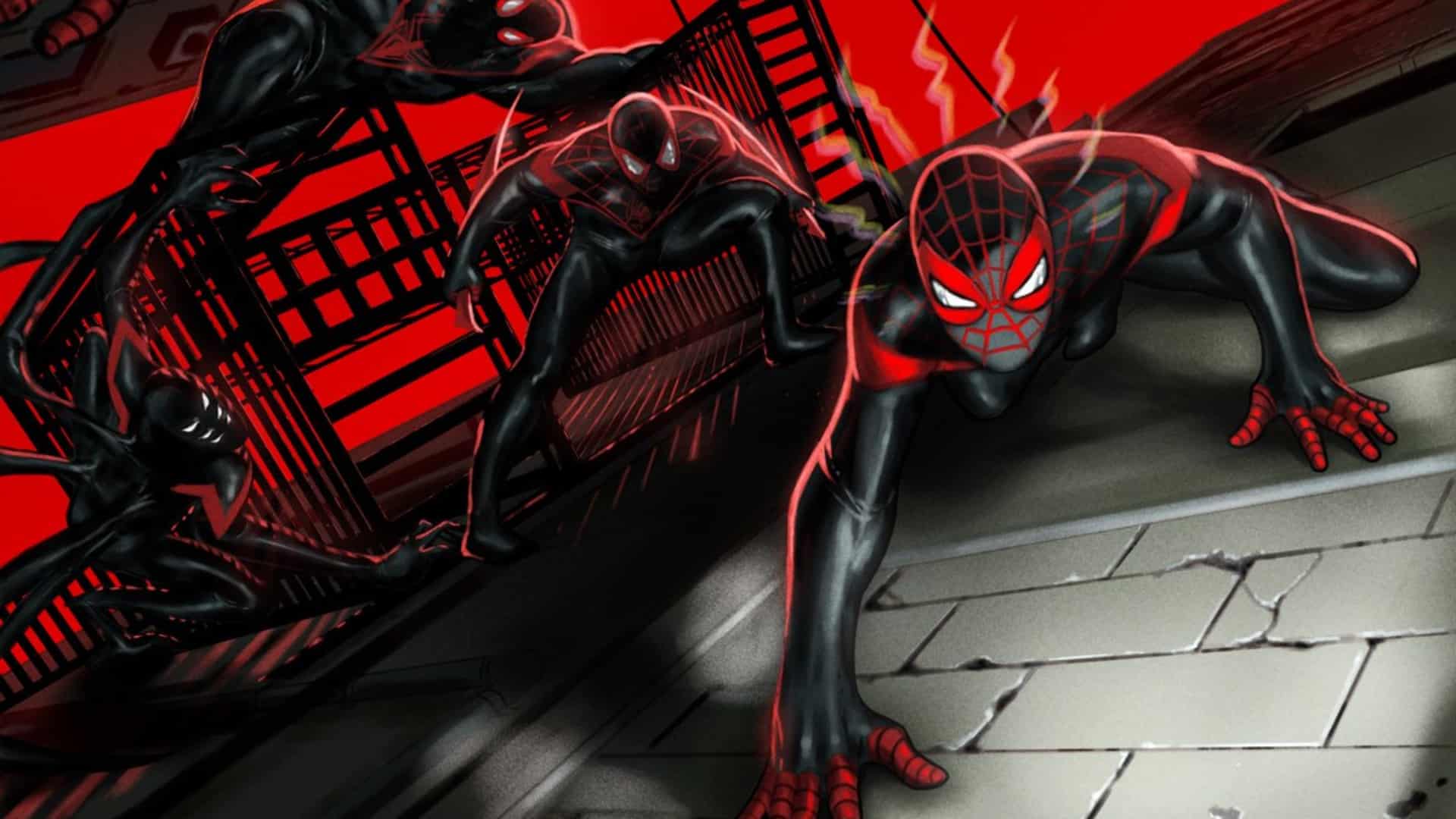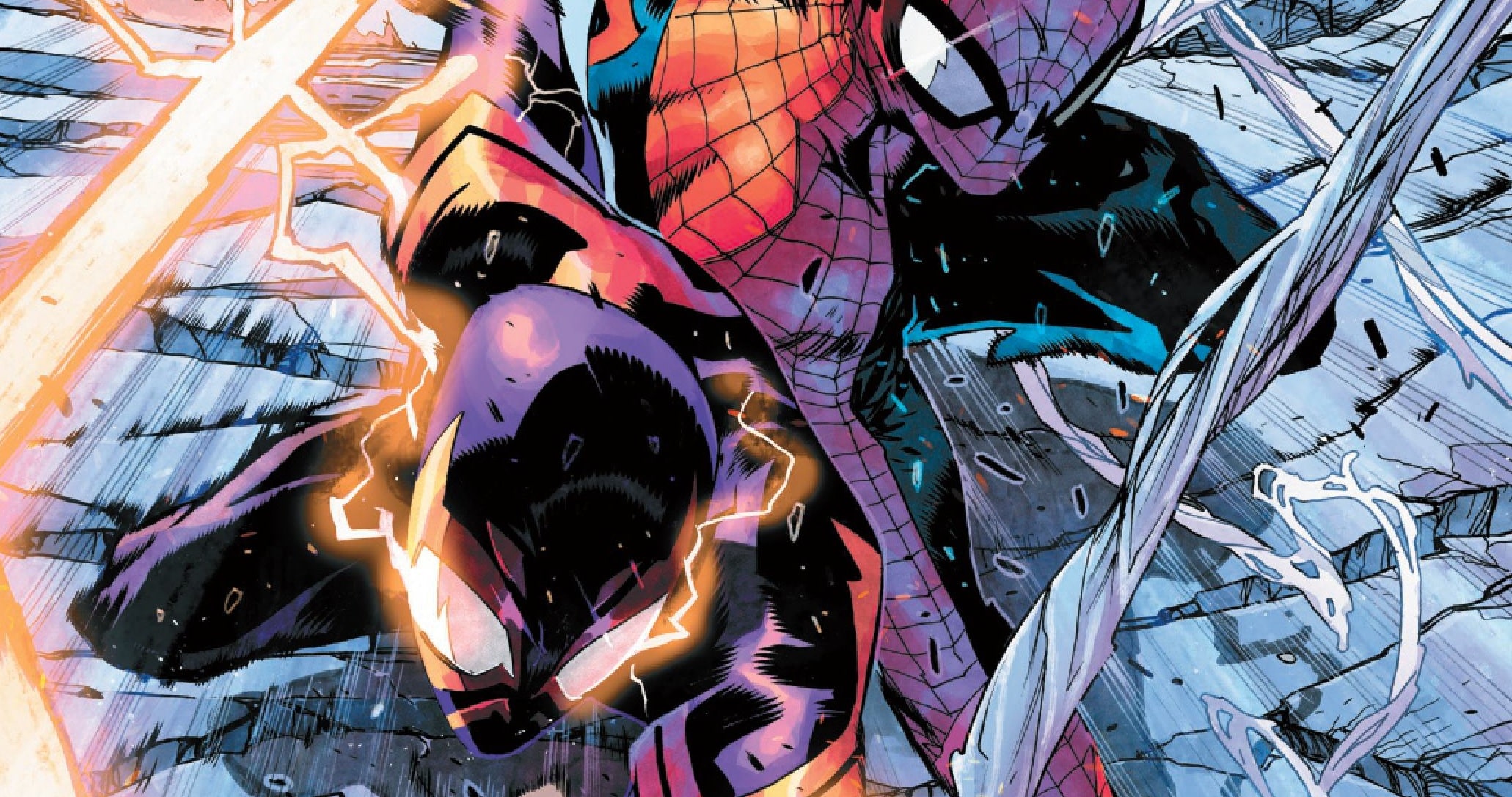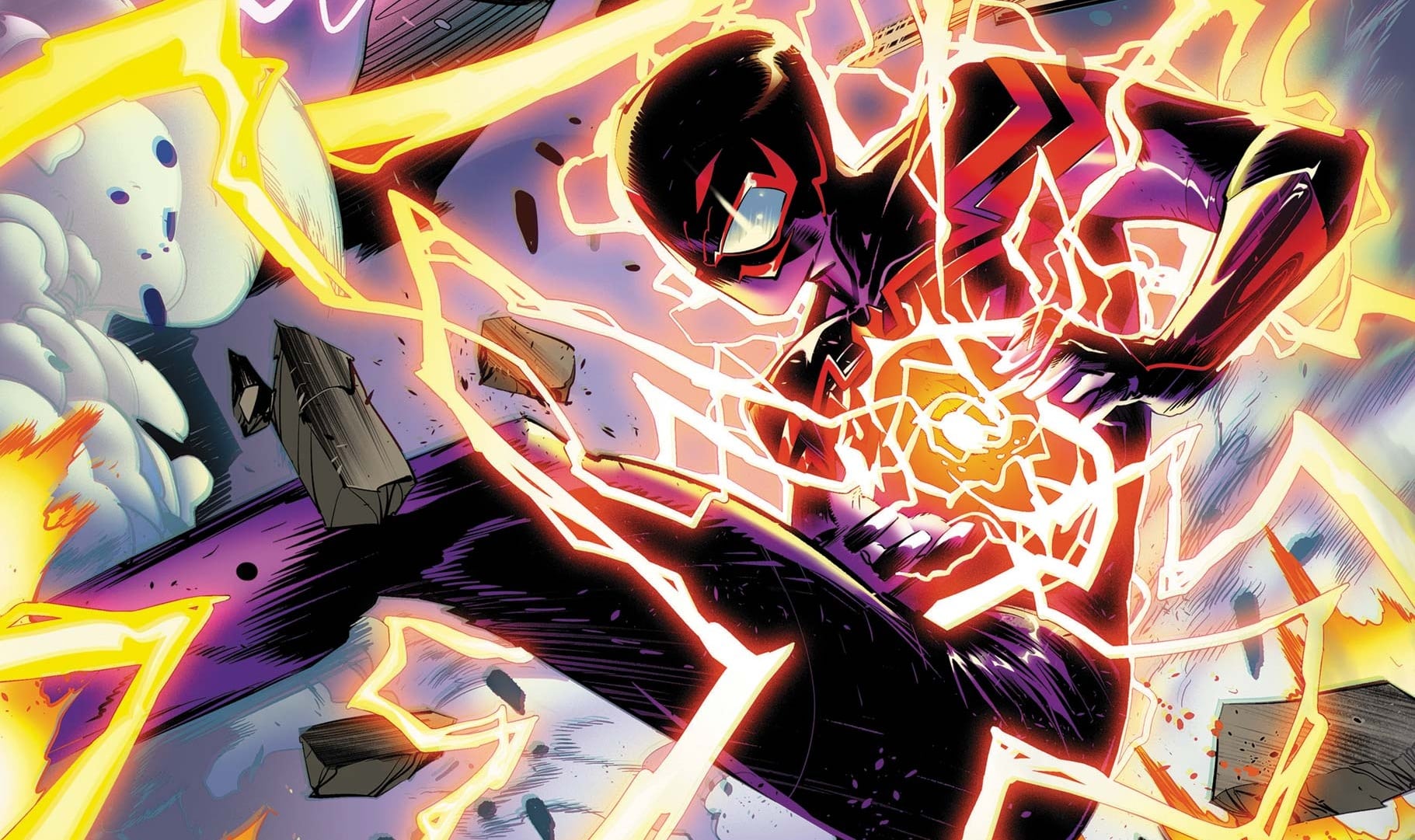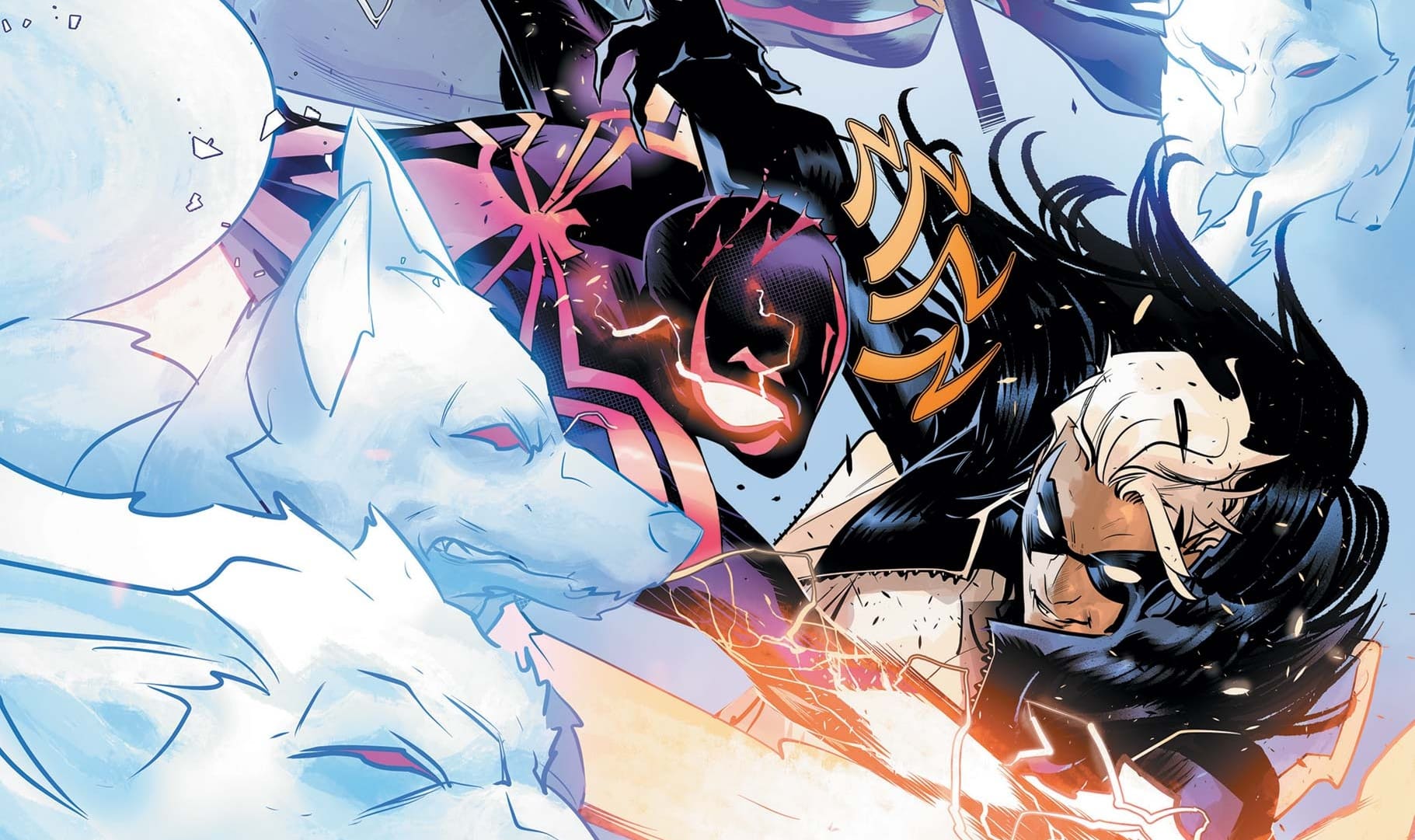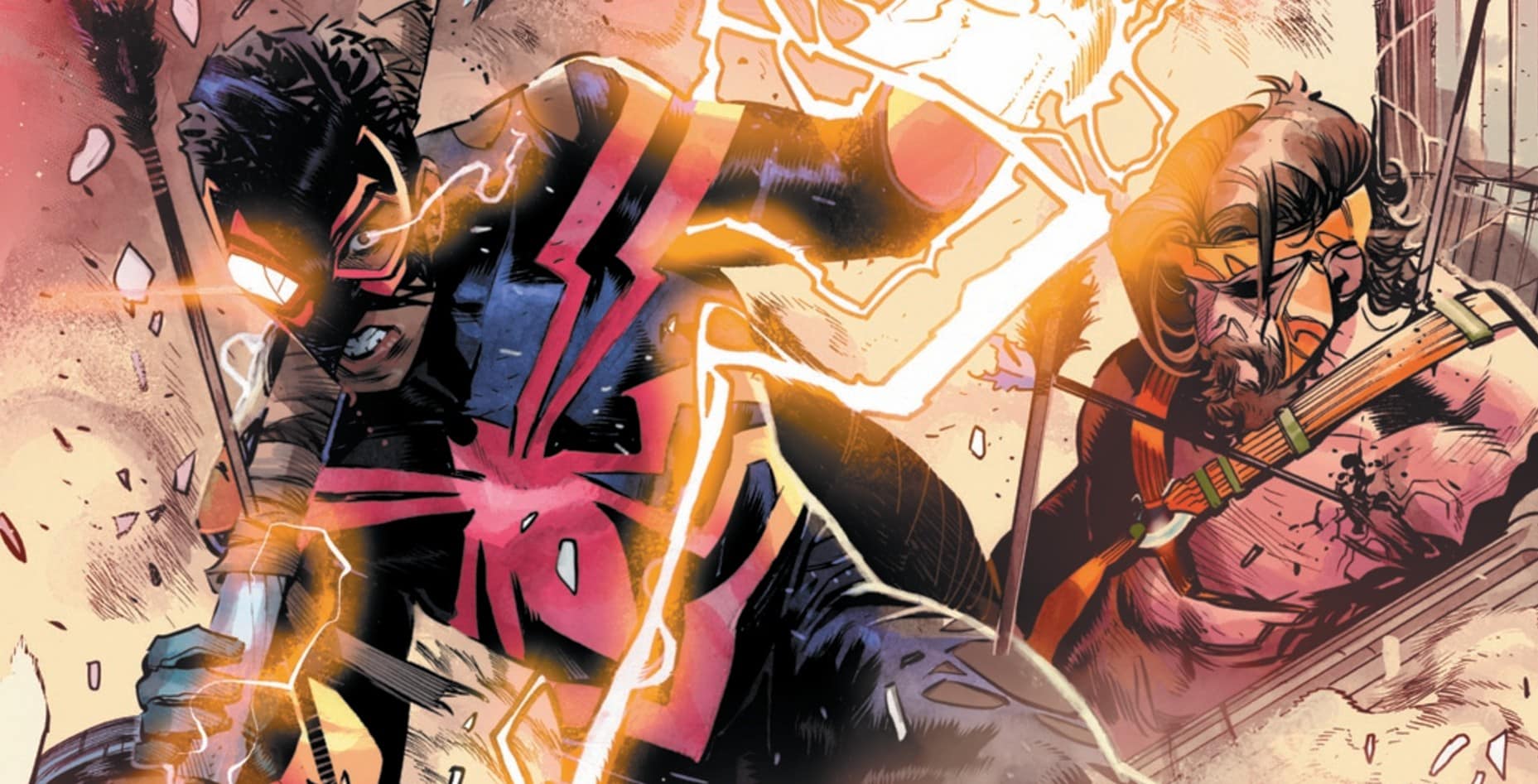After a brief respite from big events, Miles enters his very own Clone Saga in the start of a new storyline written by Saladin Ahmed, art by Carmen Carnero, colors by David Curiel, and letters by Cory Petit.
I’m a hip-hop fan. I grew up in the 90’s when remixes were a thing. At their best (heh), remixes are entirely new songs, with new beats and new lyrics, with little but the theme of the original feathering the two. At worst, a remix is a lazy verse attached like an unwanted appendage to the original work. It adds something sure, but that something is often unfulfilling. Unnecessary.
That something is not worthless, but is certainly treated as something worth less than the original. And because that remix shares so much with the original, really, what’s the purpose of the remix?
There’s a running gag in Miles Morales: Spider-Man about how Miles is the “other” spider man: The Brooklyn one. The new one.
And though it’s never explicitly said, it’s implicitly understood: the Black one.
Miles, then, becomes simply a derivation: a remixed copy of the “genuine” version. This is ironic since issue #25 of Miles Morales: Spider-Man introduces a “Clone Saga”, a remix of a much maligned (and rightly so) Peter Parker storyline.
This “new” saga is predicated on events from my favorite MM issue of this run when the Assessor, the entity that apparently created the clones, kidnapped Miles. We saw Miles alone with his thoughts and fears. Struggling, fighting, traumatized, almost broken by the experience.
We saw him have a unique experience, a unique trauma, told in a unique way, that could have, should have, led to a unique storyline.
But the thing about trauma: it never leaves. It stays with us, remixing us into entities that can become unrecognizable.
Unfortunately Miles, as a character and as a comic book, is way too recognizable here, and that’s really a shame.
Here, a look-alike villain emerges, and Miles (with some help from his friends) tries to stop them. Hilarity ensues. To tell anymore would spoil the story, but honestly there’s not really too much more to tell. It’s a serviceable story that lacks both the heart and gravitas to engage a reader beyond some pretty panels.
(An aside: I do, in fact, think the panels are pretty. Carmen Carnero does a wonderful job eliciting emotion from Miles, drawing his face equally as well in moments of duress as he draws his body in moments of action. Those moments of duress might actually be better illustrated than those moments of action, but still, this is good to look at. That said, Miles looks vastly more mature here than he does in the parallel Champions run, and that age inconsistency is a little frustrating.)
Like much of Ahmed’s run, this linear, straightforward, methodical plot is not bad, not by any means. But like those remixes I spoke of earlier, I struggle to see the point.
Miles deserves more than storyline scraps. More than just being considered an “other”, perpetually living in the shadow of a more traditional (read: cis white male) counterpart. He deserves stories that celebrate the richness of his specific circumstances. His culture. His neighborhood.
His existence.
He deserves more than another clone saga. Maybe he deserves to be more than simply Spider-Man. Yet Miles is still the same. Still the same remix of a “superior” (but not Superior) Spider-Man.
Lord knows I don’t want to see another Black child traumatized. But I do want to see this Black child grow into a force upon his own. I need him to become his own human. I need him to be treated like a priority, with his own rogues gallery, his own motivations, his own way of doing things that aren’t dependent on his namesake.
It’s past time to drop the clones. Maybe it’s time to drop the Spider-Man moniker for something more individual. More unique. More Miles.
Maybe it’s time to simply embrace Miles, a boy birthed from something familiar, but who’s grown into his own song.
It’s time for something new, not simply another remix.
A proud New Orleanian living in the District of Columbia, Jude Jones is a professional thinker, amateur photographer, burgeoning runner and lover of Black culture, love and life. Magneto and Cyclops (and Killmonger) were right. Learn more about Jude at SaintJudeJones.com.

